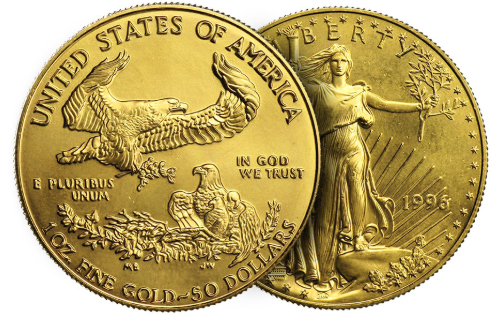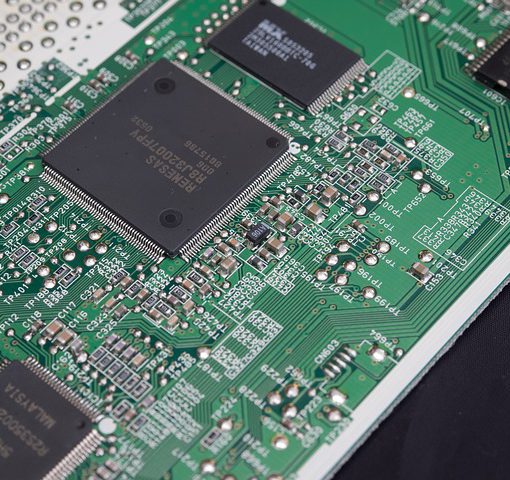Gold Taxes When Buying or Selling Gold Bullion
 There is a lot of conflicting and inaccurate information about taxes for gold and silver. If you listen to the wrong sources, you can get into trouble. This article is a summary of potential tax implications. IRS rules and regulations can change without prior notification. Always check with an accountant and/or tax professional for your specific circumstances and requirements.
There is a lot of conflicting and inaccurate information about taxes for gold and silver. If you listen to the wrong sources, you can get into trouble. This article is a summary of potential tax implications. IRS rules and regulations can change without prior notification. Always check with an accountant and/or tax professional for your specific circumstances and requirements.
Here’s what you need to consider when you buy or sell gold and silver…
Buying Gold Bullion and Precious Metals
Buying Gold in the USA…
The IRS has no reason to be notified when you initially purchase gold, silver, or other precious metals. The transaction is almost always private. There is no reporting requirement from a gold dealer to the IRS unless BOTH of the following conditions exist: 1) The transaction exceeds $10,000; AND 2) Actual cash is used to pay for the gold – or a cash-like instrument such as a money order or certified check where the buyer is not listed on the check.
In other words, if you tried to buy over US$10,000 worth of gold with cash, a dealer would be required to file a Form 8300 with the IRS, as well as a Suspicious Activity Report (SAR) with the Financial Crimes Enforcement Network (part of the U.S. Department of the Treasury). These requirements are due to regulations under the U.S. Patriot Act and Anti-Money Laundering (AML) rules.
For transactions under the $10,000 threshold – there is no reporting requirement. If you exceed the $10,000 threshold, but pay with a personal check, a business check or credit card – there is no reporting requirement.
What About Sales Tax When You Buy Gold or Precious Metals…
You may be required to pay Sales Tax on Precious Metals. It usually depends on where the purchase is made, or which state your order is shipped to. Precious Metals are exempt from sales tax in many states. However, each state within the U.S. has their own rules and regulations when it comes to collecting sales tax on precious metals.
Whether or not sales tax applies on a precious metals purchase depends on where you are located. Some states require the collection of sales tax while others do not. In all likelihood, if your state has a sales tax, you will be charged a sales tax on any gold or precious metals you purchase in that state.
What if I Buy Gold Bullion Online…
People often wonder if they are required to pay sales tax on precious metals purchases, especially purchases made online. Dealers are required to charge and collect sales taxes based upon the address the bullion products are shipped to. If you live in a state where a sales tax applies, you will likely be taxed accordingly. Keep in mind that you can ship your purchases to a storage facility rather than to your home. If you are shipping directly to a private storage facility or vault, sales tax will be charged depending on the shipping address of the storage facility.
What About Buying Gold as Investment…
Gold is considered a collectible not a capital asset. Many people believe they are investing in gold. The Internal Revenue Service (IRS) believes that you are collecting it. Aside from a possible sales tax (depending on your state) there is no tax associated with the purchase of gold or precious metals. However, long-term gains from gold and other precious metals, whether from physical ownership, certificate ownership, or even owning shares, should be reported as a collectible if they are ever sold and taxed as such.
Can you invest in gold but avoid the 28 percent rate on long-term gains? Yes, you can. One way is to invest in gold indirectly by buying stock in a mining company. Since you don’t own any actual gold, your gains would be taxed at normal capital gains rates. Though buying stocks in a gold mining company wouldn’t mean you owned any actual gold, you’d still be connected to the gold market. Increases in the price of gold could result in more value to your shares.
Selling Gold Taxes – Selling Gold Bullion
Is Gold Taxed when Sold If I Sell Gold Bullion in the USA…
Remember, the IRS considers gold a collectible, not a capital asset. The IRS believes you are collecting it. For tax purposes, selling gold should be much like selling other capital assets. However, the Internal Revenue Service treats the sale of gold and other precious metals a bit differently than it does paper investments such as stocks and bonds. Ultimately, it all depends on whether you end up with a capital gain or loss.
When you sell your gold or silver, you are only required to pay taxes if you made any profits from the sale. In that case, capital gains taxes apply. However, if the sale of your gold or silver assets results in loss or no profit, you will not be subject to any capital gains taxes.
Gold Capital Gains Tax
The IRS considers precious metals a “collectible” for income tax purposes. Gains on collectibles held for less than one year are taxed as ordinary income. This is the same tax treatment as the current capital gains tax rate for short-term capital gains. Gains on collectibles that are held for more than one year are treated as long-term and taxed at a maximum rate of 28%. So if you are in a federal tax bracket of 28% or greater, your net long-term gains from collectibles are taxed at 28%. If you are in a federal tax bracket lower than 28%, your net long-term gains from collectibles are taxed at your regular rate. The “collectibles” designation includes most forms of investment grade gold and silver.
What happens when you sell gold or silver inside an IRA…
Individual Retirement Accounts (IRAs) were legislated into existence in 1974. Collectibles were prohibited from being held in them in an effort to restrict speculative risk-taking in retirement savings vehicles. In 1986, the law was amended to allow gold and silver coin investments in IRAs. In 1998, it was expanded to include 99.5% pure bullion. The IRA owner cannot have physical possession of the gold, but it is permissible for an intermediary to hold the gold for a fee.
Any gains or losses on dispositions of gold within an IRA are treated as any other standard investment, that is, tax-deferred until withdrawn. Then, all amounts withdrawn are ordinary income, taxed at ordinary income rates.
When you sell gold or silver inside an IRA, it triggers a reporting requirement from the custodian on what is called Form 5498, which discloses all of your IRA investments each year. This is ostensibly so the IRS can track your ‘basis’ and properly check your calculations for taxes owed at the time of withdrawal.
Are there IRS Reporting Requirements if you Sell Gold in the USA?
When you sell precious metals in the U.S., there are two different sets of reporting guidelines—one applies to the dealer through which you sell, and the other applies to you.
Owner Reporting
If you sell precious metals in the U.S. for a profit, you are required by U.S. law to report that profit on your income tax return, regardless of whether or not the dealer has any reporting obligation.
Dealer Reporting
Under certain circumstances, a dealer is required to file a form 1099-B with the IRS to report proceeds paid to a non-corporate seller of precious metals. This helps the IRS determine whether the sellers have properly reported this income on their tax returns. The IRS has specific rules that determine which sales of precious metals require the dealer to file this form.
The International Council for Tangible Assets (ICTA) has published guidelines for which precious metals transactions must be reported to the IRS based on negotiations it had with the IRS. While ICTA believes they reflect the spirit of their discussions with the IRS, they are only guidelines, not a ruling, and are thus open to interpretation by the IRS and subject to change without notice. Always check with an accountant and/or your tax professional.
International Council for Tangible Assets (ICTA) Guidelines
- Gold Bars – .995 or better – transactions totaling 1 kilo (32.15 troy ounces) or more – must be reported
- Silver Bars – .999 or better – transactions totaling 1000 troy ounces or more – must be reported
- Platinum Bars – .9995 or better – transactions totaling 25 troy ounces or more – must be reported
- Palladium Bars – .9995 or better – transactions totaling 100 troy ounces or more – must be reported
- Gold Maple Leaf Coins – as minted – transactions of 25 1-oz coins or more – must be reported
- Gold Krugerrand Coins – as minted – transactions of 25 1-oz coins or more – must be reported
- Mexican Onza Coins – as minted – transactions of 25 1-oz coins or more – must be reported
Taxes on Sales of Gold ETFs
Exchange-traded funds that invest in physical gold and other precious metals are treated the same way as an investment in the metal itself. Like conventional mutual funds, gold ETFs pass tax liability to shareholders. This means that when a gold ETF sells some of the gold it holds, you have a short-term or long-term gain or loss. Gains are subject to the same tax rates that apply when you sell physical gold. The ETF will send you a 1099 form stating sales so you can report gains and losses.
What If I Lose Money on My Precious Metals?
If one buys precious metals and ends up selling them at a loss, then no capital gain exists. In fact, the investor would now have a capital loss. This capital loss may potentially offset other capital gains within the same tax year or in future tax years. In addition, a capital loss may potentially be used to offset ordinary income with certain limitations and limits. These are issues that should be discussed with one’s CPA or tax professional.
If the IRS deems one to be a “collector,” then the loss cannot be deducted. If a person is deemed to be an “investor,” then the loss on collectibles can be deducted under the same rules that apply to standard investments. Up to $3,000 can be deducted against ordinary income each year and the excess losses carried forward. Also, if there are other capital gains that tax year, 100% of the loss can be deducted up to the amount of those gains. As with most situations concerning the IRS, the burden of proof is on the taxpayer to prove that she is an investor.
What Happens When You Buy or Sell Precious Metals Abroad…
When you buy or sell precious metals overseas, the laws of the country in which the transaction occurs will apply to the sale or acquisition.
Gold and Taxes – Bottom Line
The bottom line is this: If you sell precious metals for more than what you paid for them, chances are pretty good that a tax liability will exist.
Gold is a speculative asset. Advertising regarding the purchase of gold for future appreciation is not regulated or supervised by the agencies which oversee the marketing and sale of securities. This gives rise to even more speculation.
Many people do not think about the tax consequences of selling gold, silver, and other collectibles. The tax rates on the sale of collectibles are much higher than on standard investments. Losses may not be deductible if the person is deemed to be a collector rather than an investor.
Taxes are an important consideration for all investors. This simple guide outlines some of the potential tax implications of selling precious metals. This is not tax advice, and we are not tax advisers. Always consult your CPA or tax professional for any tax related matters. Although we believe the data in this guide is reliable, we make no guarantee as to its accuracy.
Gold and Silver IRA
A Gold and Silver IRA or Self Directed Precious Metals IRA is an Individual Retirement Account that allows an individual to hold hard, physical assets in their retirement portfolios. This includes physical gold and other approved precious metals. They are held in trust or custody for the benefit of the IRA account owner. They function the same as a regular IRA. But, instead of holding just paper assets, they hold physical bullion coins or bars.
Are you interested in learning about how to hold Gold in a retirement account? Check out Gold and Silver IRA – Setting up a Self Directed Precious Metals IRA



